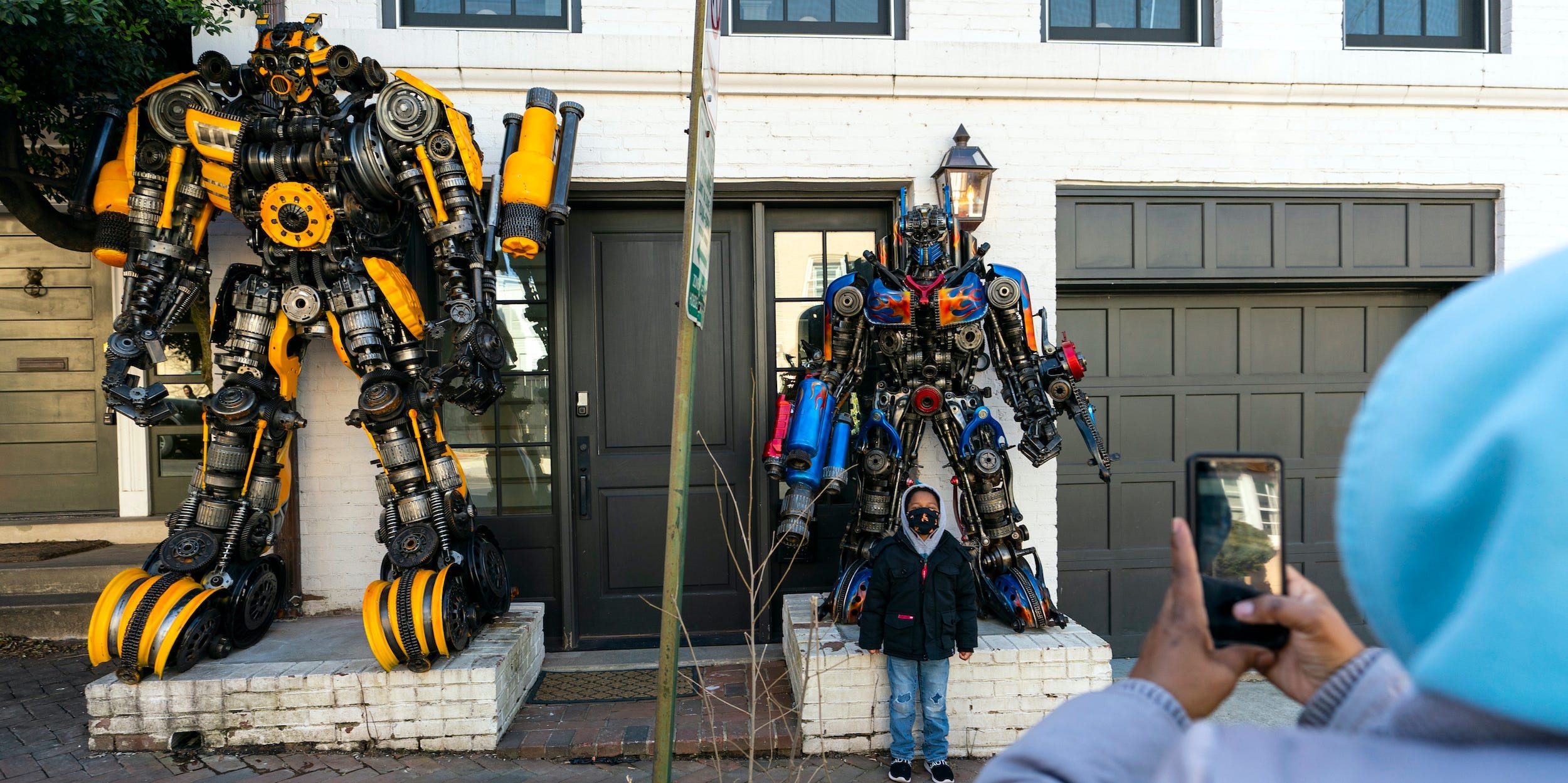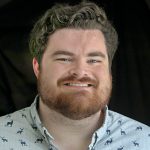
Carolyn Kaster/AP Photo
- Newton Howard is a renowned cognitive scientist and billionaire who irked his DC neighbors.
- He put up Transformer robots in his yard, drawing the ire of some Georgetown residents.
- Howard spoke with Insider about how the robots stand for curing Parkinson's with a brain chip.
- Visit the Business section of Insider for more stories.
A viral neighborhood spat in the nation's capital over Transformers that drew scores of tourists to a secluded Georgetown street is actually not about irking the rich and powerful, according to the man behind the robots.
Instead, it's about a billionaire cognitive scientist's efforts to "restore human dignity" to those suffering from diseases like Parkinson's and Alzheimer's by perfecting a "brain-computer interface," Georgetown professor Newton Howard told Insider.
Howard, 45, has expertise in modeling the human brain with computer code, natural language processing, and artificial intelligence. He moved into his Georgetown home in mid-2020 after running the Oxford Computational Neuroscience Laboratory in the UK.
Before that, he was the director of MIT's Mind Machine Project, where he made significant innovations in modeling the activity of the human brain. He has also worked with the US military on similar initiatives. In addition to his litany of patents, Howard holds several venture capital funds and private investments in companies valued at over $20 billion, according to his business page.
Howard spoke with Insider on Monday about the Transformers dustup, which he said has reached an amicable solution and, hopefully, has drawn some attention to his latest research: a potentially life altering technology for Parkinson's disease.
This interview has been lightly edited for length and clarity.
Insider's Jake Lahut: Before we get into the neighborhood Transformers issue, I was wondering if you could walk me through your professional background and how you ended up in DC?
Newton Howard: I'm American, but I studied in England and in France. I was modeling the human mind - more predictably, a specific apparatus, known to us as intent - and intent is something that is difficult to compute around. Most of the variables are known, and I was solving a problem, friendly fire, for the military - how orders are communicated, how they are carried and aggregated and, misinterpreted sometimes, leading to fratricide. So that was my first PhD while I was in the military, specifically the intelligence community.
Later on, after I did my active/reserve time, I had a TBI, a traumatic brain injury, so I decided to come back to the states, went to MIT, created the Mind Machine Project, and decided to study medicine. So I was studying medicine at Oxford while I was running the project and creating multiple labs globally, and them get them all to collaborate over the creation of a brain-computer interface that has the same functions and features as DBS, deep brain stimulations - alleviating neurodegenerative disorders, and bring augmentation.
JL: So where did you acquire these Transformer things, and how did the whole thing in Georgetown come about?
Howard: So I have a lot of robots in my house. Some of them are moving, functioning, talking robots, some of them are Transformers that are made of recycled motorcycle material. So I met the artist and commissioned the creation of a number of them. And I put them wherever I work, wherever I live.
Number one, they save the environment, because a lot of the motorcycle and car parts, they just get wasted. The city is in discussion with me now to actually place 16 of them in various areas around DC, and that, interestingly, is probably a good reaction to the news and what happened.
JL: If someone is just like walking down the street and they see these Transformers, and they're curious, and let's say they ring your doorbell to ask what it's all about, what would you tell them?
Howard: And that did happen actually, several times, and people dropped notes in my mailbox. They represent the coalition of men and machine, working in harmony but as distinct entities. We create robotic and prosthetic arms and all of these things to compensate for damage. That does not make us robots. There are two distinct structures and creations, you know? Or at least that's what I believe, while there are others who believe robots will take over the world.
JL: Interesting, and you think this is opposed to the Elon Musk view, because of that notion of separation between man and machine?
Howard: Yeah, I mean, in his and many other notions - which I don't want to mention by name, because it would be very problematic and I was told not to [laughs] - because we are in some discussions about some IP that he decided to use that is mine.
JL: Alright, we can leave it at that!
